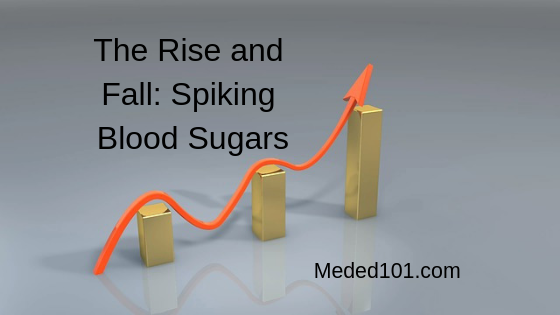About 10 days ago, a 76-year-old male called you to tell you that his spiking blood sugars are higher than they have been in a long time. His blood sugars were in the 300-400 range. He used to never get much above 200. He reports that he has had no diet changes and is adamant that he is taking his insulin as directed.
Because of this change in his blood sugars, his basal insulin was increased from 30 units per day to 35 units per day and 3 days later, increased to 40 units per day as the response from the first increase was inadequate.
Blood sugars did come down back to their usual range, but about 5 days after these changes, he bottomed out and ended up in the emergency room for hypoglycemia.
I think this scenario demonstrates how good history taking can help us identify problems and prevent future problems. He was recently diagnosed with a COPD exacerbation and pneumonia and was placed on 40 mg of prednisone for 10 days. This prednisone was likely the culprit for the spiking blood sugars.
Once the prednisone was complete, this patient likely could have gone back to his previous insulin dose. If there wasn’t a plan to reduce, at a minimum, this patient should have been well educated that blood sugars will likely fall once the prednisone is done.
- 30 medication mistakes PDF
- 18+ Page Drug Interaction PDF
- 10 Commandments of Polypharmacy Webinar based on my experiences in clinical practice



Another approach would have been to do NOTHING for 10 days and inform the patent about the potential increase in glucose to taking prednisone for a SHORT TIME and that once the treatment was over a re-evaluation could be done. Why is it necessary to chase numbers for what should be entirely reversible.
I AGREE 100% THIS GOOD HISTORY (AKA – talking to the patient) IS CRUCIAL IN PATIENT CARE.